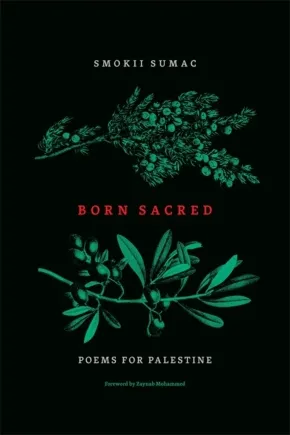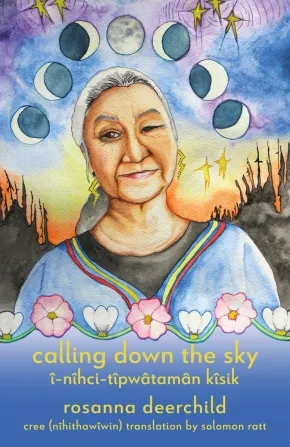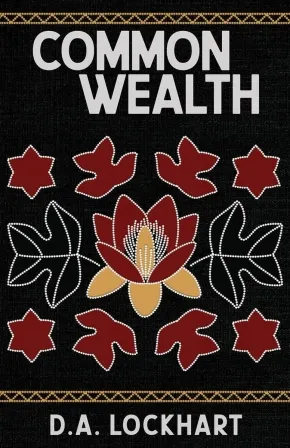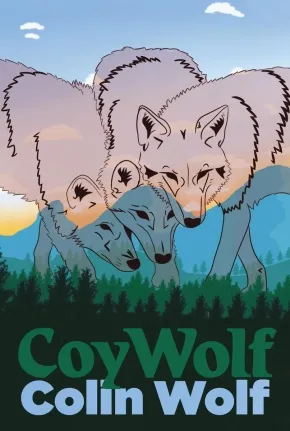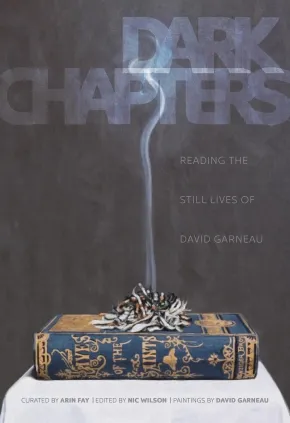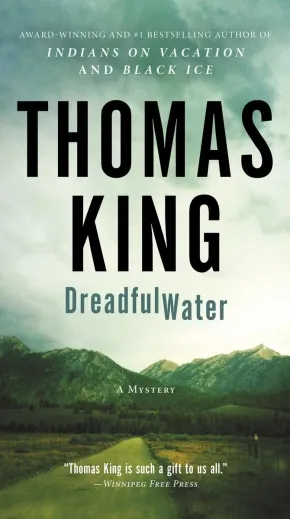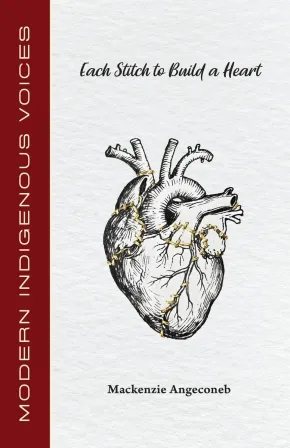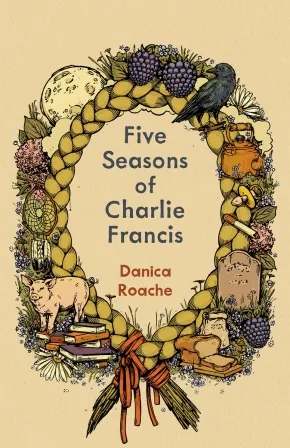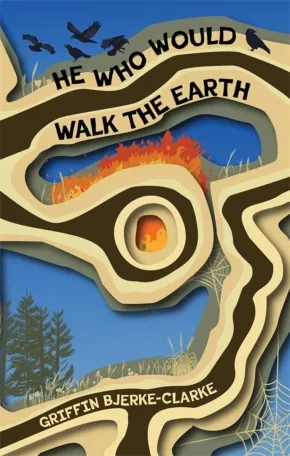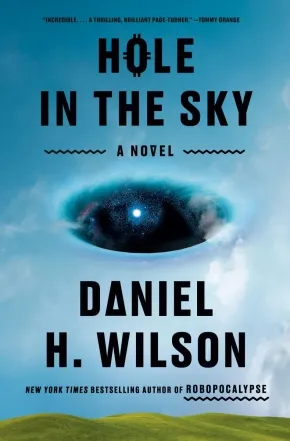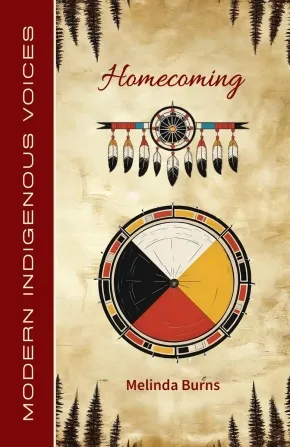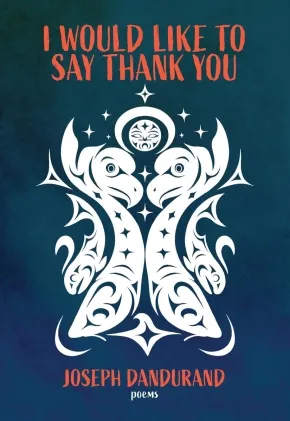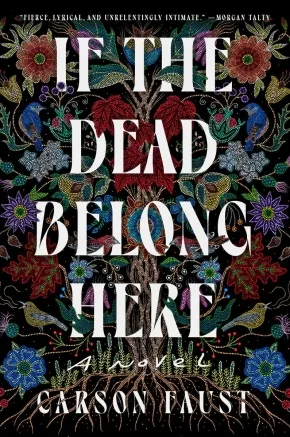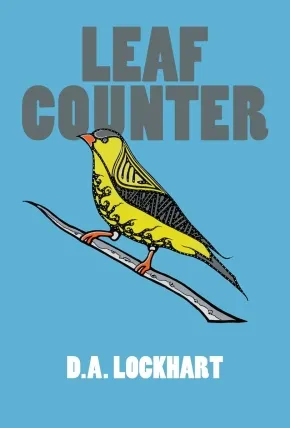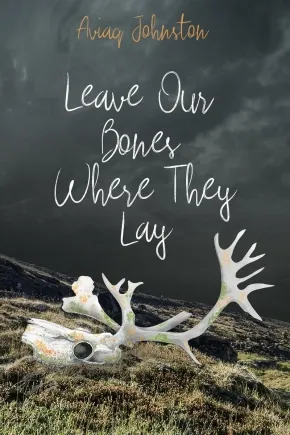
Fiction
16
-
30
of
579 Results;
Sort By
Go To
of 39
Born Sacred: Poems for Palestine
$27.00
Format:
Paperback
Text Content Territories:
Indigenous;
Reading Level: N/A
ISBN / Barcode: 9781773637259
Synopsis:
Synopsis:
A journalistic poetry collection reflecting on Palestinian and Indigenous solidarities, genocides, life, and liberation.
In October 2023, upon witnessing the escalation of Palestinian genocide, Ktunaxa poet Smokii Sumac began writing poems reflecting on the stories of Palestinians in Gaza who were risking their lives to share news of the genocide of Palestinian culture, literature, and life. These 100 poems offer a witnessing of the escalation of colonial violence, both current and historical, across oceans, lands, cultures, and people, and the reckoning one has in the face of a genocide.
Vulnerable, eloquent, compassionate, and enduring, Born Sacred is an in-time reflection honouring the shared histories of Indigenous Peoples of North America and of the people in Palestine. Sumac offers this collection as a small piece of life dedicated to Palestinians and resounds the collective call for solidarity in our shared liberation.
Reviews
"Born Sacred: Poems for Palestine is a profound work of grace and solidarity, rooted in a hard-earned understanding of colonialism’s insatiable appetite. What Smokii Sumac has done, over the course of 100 searing, open-hearted poems, is give voice to the immeasurable grief of bearing witness to genocide – the overwhelming magnitude of it, colliding with a knowledge that this has happened before, that there is an age-old methodology to the act of endless taking. I am so grateful for this work, for this beautiful, honest reminder that, whatever power empires wield, we have what it can never take. We have one another."— Omar El Akkad, author of What Strange Paradise
"The succinct starkness of Smokii Sumac’s offerings are an X-Ray to the grief and absurdity of our times. This dangerous dichotomy of trying to live one’s everyday life while holding the tragedy of everyday loss is profoundly captured in each stanza."— Catherine Hernandez, author and screenwriter of Scarborough
"This collection is the antidote to the silence and cowardice of millions, and the medicine for those who watched the first recorded genocide unfold and needed to be seen and witnessed. Creating room for collective grief, Smokii Sumac shows us the responsibility and power of the poet to face the blank page in the here and now and the necessity for words to remain as a testimony to history. Born Sacred is an essential work in the fight for collective liberation and a reminder that hope can be rooted in allyship." — Rayya Liebich, author of Min Hayati
"I am always drawn to the constellational consciousness that permeates so many Asian refugee, Indigenous, and Black literary and cultural works. This constellational consciousness, the culturally-informed relational view of life and solidarity in struggle, is vital in Smokii Sumac’s collection. In both form and content, the poems shatter dominating linear and compartmentalizing interpretations of the world with constellating stanzas, voices, and experiences that reveal the intertwined histories and presents of colonial harm and Indigenous survivance."— Maral Aguilera-Moradipour, assistant professor, Asian refugee literatures and cultures, SFU
Additional Information
160 pages | 5.50" x 8.50" | Paperback
Calling Down the Sky: Tenth Anniversary Edition
$24.95
Text Content Territories:
Indigenous Canadian; Métis; Inuit; First Nations;
ISBN / Barcode: 9781552455159
Synopsis:
Synopsis:
A tenth anniversary bilingual edition in English and Cree of Rosanna Deerchild’s stunning collection about the intergenerational impacts of the Canadian residential school system.
you want me to
share my story
ok then
here it is
here in the unwritten
here in the broken lines
of my body that can never forget
In Calling Down the Sky, poet Rosanna Deerchild viscerally evokes her mother’s experience within the residential school system, the Canadian government’s system of violently removing Indigenous children from their homes, families, and languages in an explicit attempt to destroy Indigenous cultures and identities. With precise and intricate poetry, Deerchild weaves together the story of her mother’s childhood and Deerchild’s memories of her mother: her love of country music, her attempts to talk about what happened to her, how tightly she braided her daughter’s hair on the first day of school. In doing so, Deerchild illustrates the disruptive and devastating impacts of the residential school system on generations of families while also celebrating the life and culture of her mother and other survivors.
Published for the first time in a bilingual edition of Cree and English, in time for the tenth anniversary of the original publication, Calling Down the Sky is an intimate and gorgeously evoked reckoning with a horrifying part of North American history.
Reviews
“Rosanna Deerchild’s poems roll off the tongue as easy as old country songs. With her deft hand, Deerchild finely tunes every word and weaves them together as intimately as she braids her girls’ hair. Together, these poems create a story that sings with beautiful tension, amazing resilience, and love as big as the sky." - Katherena Vermette, Métis Writer
"The poetry collection, called calling down the sky, describes personal experiences with the residential school system in the 1950s and the generational effects it had." - CBC
"This poetry collection is fierce, raw and candid. It is also visceral, intricate and, above all, illuminating. By recounting her mother’s residential school experience in a powerfully poetic narrative, Deerchild expertly illustrates the heartbreaking trauma of that tragic saga and how it complicates relationships over generations. By beautifully and elaborately exploring those relationships and that devastating history, she finds and celebrates the resilient and hopeful spirit that many residential school survivors, like her mother, have managed to retain in the face of horror and torment. As a result, calling down the sky is an essential read in understanding the true modern history of this land and in honouring the people who survived it.” - Waubgeshig Rice
Educator Information
Bilingual: English and Cree
Additional Information
96 pages | 5.50" x 8.50"
Commonwealth
$19.00
Format:
Paperback
Text Content Territories:
Indigenous American; Native American; Lenape (Delaware);
Reading Level: N/A
ISBN / Barcode: 9781928120483
Synopsis:
Synopsis:
Commonwealth is a profound lyrical meditation on the pre- and post-colonial migrations of the Lenape population throughout the American Midwest, from the watershed of Weli Sipu (the Ohio River) in the Commonwealth of Kentucky to Indiana and beyond. This is a book that transcribes the languages of rivers, highways, rail lines, and buffalo traces. It seeks—or is pushed toward—destinations that are always over the horizon. It is about the fluidity of space and time, and the tangibility of history. As the Lenape journey ever northward and westward, they both create and are created by a collective body of stories: stories of belonging and exclusion, of freedom and confinement, of aspirations and hard truths. Commonwealth explores the ways landscape and people inform one another, and does so in a way that is as clear as a broad Ohio sky.
Additional Information
116 pages | 5.50" x 8.50" | Paperback
CoyWolf
$18.95
Format:
Paperback
Text Content Territories:
Indigenous Canadian; Métis;
Reading Level: N/A
ISBN / Barcode: 9780369105738
Synopsis:
Synopsis:
Isidor, a half-coyote, half-wolf coywolf, has always struggled to find his place as a half-breed. After the untimely death of his mother, he leaves his community to roam across prairies, forests, and mountains, sharing stories in his search for kinship and belonging. But as Sharp-Tooths are increasingly policed, tagged, or killed to make way for insatiable human expansion, Isidor and his pack are forced to make impossible decisions. Do they retreat to better their chances of survival, or risk everything by joining a resistance of rogue animals to protect what’s left of their homeland?
In this gripping drama, Colin Wolf weaves a powerful allegory through the lives of animals, paralleling the displacement of Métis people and the enduring struggle for Indigenous land rights on Turtle Island. CoyWolf is a hopepunk thriller and a roadmap for young revolutionaries navigating the realities of resistance, doing your best, and learning the wisdom of those who have walked the path before.
Additional Information
112 pages | 5.12" x 7.62" | Paperback
Dark Chapters: Reading the Still Lives of David Garneau
$32.95
Artists:
Editors:
● Arin Fay
Format:
Paperback
Text Content Territories:
Indigenous Canadian; Métis;
ISBN / Barcode: 9781779400536
Synopsis:
Synopsis:
A singular collection of responses to the still life paintings of acclaimed artist David Garneau
Dark Chapters brings together 17 poets, fiction writers, curators, and critics to engage with the works of David Garneau, the Governor General’s Award-winning Métis artist. Featuring paintings from Garneau’s still life series “Dark Chapters” alongside poetry, fiction, critical analysis, and autotheory, the book includes contributions from Fred Wah, Paul Seesequasis, Jesse Wente, Lillian Allen, Billy-Ray Belcourt, Larissa Lai, Susan Musgrave, and more.
A nod to the Reports of Truth and Reconciliation Commission, in which Justice Murray Sinclair describes the residential school system as “one of the darkest, most troubling chapters in our nation’s history,” Garneau’s still life paintings combine common objects (books, bones, teacups, mirrors) and less familiar ones (a Métis sash, a stone hammer, a braid of sweetgrass) to reflect the complexity of contemporary Indigenous experiences. Provocative titles like “Métis in the Academy” and “Smudge Before Reading” invite consideration of the mixed influences and loyalties faced by Indigenous students and scholars. Other paintings explore colonialism, vertical and lateral violence, Christian influence on traditional knowledge, and museum treatment of Indigenous belongings.
Rooted in Garneau’s life-long engagement at the intersections of visual art and writing, Dark Chapters presents a multifaceted reflection on the work of an inimitable, unparalleled artist.
Includes contributions from Arin Fay, Billy-Ray Belcourt, Cecily Nicholson, David Howes, Dick Averns, Fred Wah, Jeff Derksen, Jesse Wente, John G. Hampton, Larissa Lai, Lillian Allen, Paul Seesequasis, Peter Morin, Rita Bouvier, Susan Musgrave, Tarene Thomas, and Trevor Herriot.
Reviews
“A smart collection of art and essays, Dark Chapters activates deep conversations about art, resistance, and sovereignty. Visiting with paintings by Métis artist David Garneau, seventeen poets, curators, and thinkers offer complex provocations that trouble and activate new forms of communities and relationships.” —Dr. Carmen Robertson, Canada Research Chair in North American Indigenous Visual and Material Culture
“Provocative, probing, and precarious, Dark Chapters pairs the poetic, literary, political, and critical responses of seventeen authors with the deceptively uncluttered yet gravid and combustible still lifes of David Garneau. This collection of pictures and words undertakes a necessary examination of the uncanny oppositions and disquieting literal and symbolic inversions that signify and animate the Indigenous history of Canada.” —Bonnie Devine
“Dark Chapters is a lesson in relationality and innovation. Built through conversations between Garneau’s work and artists/writers, the intergenerational contributors to this book come together in relation to Garneau and his still lives to explore the important contribution the artist has made to Canadian, Indigenous, and International art.” —Erin Sutherland
Educator Information
Table of Contents
Foreword
Nic Wilson
Still Life
John G. Hampton
Stone and Rock: I Have Failed You
Peter Morin
Wander Carried
Cecily Nicholson
On Kinship
Paul Seesequasis
Learning from Indigenous Academic Solidarity
Jeff Derksen
Knock Knock
Lillian Allen
Unsettling the Colonial Gaze
Trevor Herriot
Smudge Before Reading and The Land Does Not Forget
Tarene Thomas
Confession (after David Garneau) by Rita Bouvier
Fuse and Formal and Informal Education
Jesse Wente
The Problem with Pleasure
Billy-Ray Belcourt
Métis Realism: On the Materiality of Smoke and Relationality of Rocks
David Howes
Allies (after Hsieh and Montano)
Larissa Lai
Ally Tear Reliquary
Arin Fay
Understanding Attempted Enlightening: Between Language as Power…and Light as Life
Dick Averns
Spine
Fred Wah
The Resting Heartbeat of a Wounded Bird
Susan Musgrave
Gallery
About the Artist
About the Curator
About the Editor
About the Contributors
List of Artworks
Index
Additional Information
160 pages | 6.50" x 9.50" | 58 colour illustrations | Paperback
DreadfulWater (PB)
$13.99
Format:
Paperback
Text Content Territories:
Indigenous American; Native American; Cherokee;
Grade Levels: 12; University/College;
ISBN / Barcode: 9781443474962
Synopsis:
Synopsis:
The award-winning, bestselling author of The Back of the Turtle and The Inconvenient Indian masters the comic mystery novel in this series opener, starring ex-cop Thumps DreadfulWater.
Thumps DreadfulWater is a Cherokee ex-cop trying to make a living as a photographer in the small town of Chinook, somewhere in the northwestern United States. But he doesn’t count on snapping shots of a dead body languishing in a newly completed luxury condo resort built by the local Indian band. It’s a mystery that Thumps can’t help getting involved in, especially when he realizes the number one suspect is Stick Merchant, anti-condo protester and wayward son of Claire Merchant, head of the tribal council and DreadfulWater’s sometimes lover. Smart and savvy, blessed with a killer dry wit and a penchant for self-deprecating humour, DreadfulWater just can’t manage to shed his California cop skin. Before long, he is deeply entangled in the mystery and has his work cut out for him.
Reviews
"The characters are really clever. . . . The dialogue is crisp and just begs to head to the screen." — The Globe and Mail
Educator & Series Information
This book is part of the DreadfulWater Mystery Series.
Books in this series include:
- Dreadful Water
- The Red Power Murders
- Cold Skies
- A Matter of Malice
- The Obsidian Murders
- Deep House
- Double Eagle
- Black Ice
A novel that will appeal to mystery fans as well as Thomas King’s loyal audience, DreadfulWater is a catchy, clever read.
Additional Information
464 pages | 4.19" x 7.50" | Paperback
Each Stitch to Build a Heart
$19.95
Format:
Paperback
Text Content Territories:
Indigenous Canadian; First Nations; Anishinaabeg; Ojibway; Lac Seul;
Reading Level: N/A
ISBN / Barcode: 9781772312577
Synopsis:
Synopsis:
The central theme of this poetry collection revolves around the idea that each individual is shaped by the connections they forge with others throughout their lives. Each poem serves as a tribute to the relationships that influence us, weaving a rich tapestry of shared experiences and emotions. The collection is guiding readers through a journey of reflection and introspection. Each poem follows a distinct outline: it begins with a cherished memory that encapsulates the essence of the relationship, then delves into the significance of that bond and what it has taught us. Next, the poems explore the evolution of these connections—whether they have transformed, faded away, or remain vibrant in our lives. As the verses unfold, they evoke sensory reminders of these individuals—objects, places, or moments that bring them to mind—while also celebrating the qualities we admire in them. The poems culminate in a heartfelt exploration of their lasting impact on our identities and the permanent marks they leave behind. Each poem becomes a mirror, inviting readers to consider their own relationships and the intricate ways in which these connections shape who they are. Through this collection, we are reminded that we are, in many ways, a mosaic of everyone we have loved, learned from, and lost along the way.
Educator & Series Information
This book is part of the Modern Indigenous Voices series.
Additional Information
96 pages | 5.50" x 8.50" | Paperback
Five Seasons of Charlie Francis
$24.95
Format:
Paperback
Text Content Territories:
Indigenous Canadian; First Nations; Mi'kmaq (Mi'gmaq);
Reading Level: N/A
ISBN / Barcode: 9781774714645
Synopsis:
Synopsis:
A bold, refreshing, and darkly funny debut novel about a mixed-ancestry Mi'kmaw woman balancing academia, grief, love, and new motherhood, for fans of Fleabag and Amanda Peters.
When the tides in the Cobequid Bay went out and left stretches of mudflats, I could walk halfway to the other shore. Sometimes the mud engulfed my feet, right up to my ankles, and made it hard to move. The longer you stayed stuck, the harder it was to keep going.
Charlie Francis's five-year plan has gone to shit. She was supposed to greet the new millennium by diving head-first into a master's degree, but her thesis has ground to a halt, Y2K was a bust, her rambunctious family and claustrophobic hometown are driving her around the bend—and the maybe-love-of-her-life, Adam, keeps joking about her moving home to marry him and have his babies.
When Charlie's beloved uncle—the same person who told her to get out of town and never look back—dies suddenly, Charlie leans into her independence, breaking Adam's heart and rushing headlong into an academic career despite the baked-in racism of the predominantly white institution. When she unexpectedly becomes pregnant, she has to navigate being a (mostly) single mother on top of everything else.
Charlie finds herself at a crossroads—and only so much stress-baking can keep reality at bay. How can she reconcile being a student of history within the colonial system that exploited her ancestors? How can she be a good mother when she can barely afford groceries? And how can she be a proud Mi'kmaw woman when the world seems determined to keep her down?
Maybe it's time for a new five-year plan.
With grit, humour, a lovable cast, and the nostalgia of the early aughts, this bold and refreshing novel from a powerful new voice in Indigenous fiction explores grief, the complex bonds of family, and cultural identity.
Additional Information
320 pages | 5.50" x 8.50" | Paperback
He Who Would Walk the Earth
$24.00
Format:
Paperback
Text Content Territories:
Indigenous Canadian; Métis;
Reading Level: N/A
ISBN / Barcode: 9781773637228
Synopsis:
Synopsis:
Felix walks alone through a decaying world until he is challenged to remember his past and build his future — an anti-colonial western exploring trauma, memory, and healing.
Felix Babimoosay is his most recent name, and it seems better than any other name he’s been offered. He journeys ever forward across a sharp landscape of flat plains, stung by insects, wind, and thirst. Unable to remember his past, he doggedly walks alone through the decaying world until he is pursued by a threatening man claiming a bounty on Felix’s head. Felix’s irritation spurs a slow memory of the days he left behind, until he stumbles into a corrupted town and a city of talking crows that push him to move beyond his lost memories.
Sparse and dreamy, Griffin Bjerke-Clarke’s debut novel explores memory, identity, trauma, and healing through a timeless journey. Métis storytelling methods and elements of horror infuse He Who Would Walk the Earth, an anti-colonial western that powerfully evokes a mood reminiscent of twentieth-century classics like Waiting for Godot. This book unsettles as much as it stokes, dystopian in Felix’s apathy yet optimistic in the way he addresses challenges along his listless way. In the end, Felix must learn from his earnest mistakes as he begins to understand that agency requires collaborating with those around him.
Reviews
“He Who Would Walk the Earth is an anti-imperialist adventure that explores the strange and beautiful gifts of becoming who we are-and how we exist-in our individual and collective power. Bjerke-Clarke deftly blends western and fantasy genres in this innovative debut novel where relationality shapes reality.” - Tiffany Morris
“A walker journeys through a dystopian and mythically violent fairytale, where time and space are elastic and other-than-humans are central, to learn the lesson shared with him that ‘it doesn’t have to be this way.’ Partly a condemnation of the terrible costs of war and capitalism, Griffin Bjerke-Clarke reminds us, despite it all, we need to have hope.” - Deanna Redder
Additional Information
160 pages | 5.50" x 8.50" | Paperback
Hole in the Sky: A Novel
$39.99
Format:
Hardcover
Text Content Territories:
Indigenous American; Native American; Cherokee;
ISBN / Barcode: 9780385551113
Synopsis:
Synopsis:
A Native American first contact story and gripping thriller from the New York Times bestselling author of Robopocalypse
"Thrilling and personal... an important addition to the landscape of science fiction."—Pierce Brown, #1 New York Times bestselling author of Red Rising
"Hole in the Sky is mind-bending… indigenous knowledge collides with science fiction in a thrilling page-turner."—Sterlin Harjo, filmmaker and writer of Reservation Dogs
On the Great Plains of Oklahoma, in the heart of the Cherokee Nation, a strange atmospheric disturbance is noticed by Jim Hardgray, a down-on-his-luck single father trying to reconnect with his teenage daughter, Tawny. At NASA’s headquarters in Houston, Texas, astrophysicist Dr. Mikayla Johnson observes an interaction with the Voyager 1 spacecraft on the far side of the solar system, and she concludes that something enormous and unidentified is heading directly for Earth. And in an undisclosed bunker somewhere in the United States, an American threat forecaster known only as the Man Downstairs intercepts a cryptic communication and sends a message directly to the president and highest-ranking military brass: “First contact imminent.”
Daniel H. Wilson’s Hole in the Sky is a riveting thriller in the most creative tradition of extraterrestrial fiction. Drawing on Wilson’s unique background as both a threat forecaster for the United States Air Force and a Cherokee Nation citizen, this propulsive novel asks probing questions about nonhuman intelligence, the Western mindset, and humans’ understanding of reality.
Reviews
“Incredible... Hole in the Sky is not only a thrilling, brilliant page-turner, its pages also turned me into the kind of reader I always want to be—deeply involved and curious about the world and the story unfolding before me, as if by magic—the kind of reader who can’t stop reading, who dreads the book coming to an end even while I can’t stop making my way toward it, who goes back and starts all over to figure out how it was done. Here we have a highly original premise about alien contact—no small feat unto itself—which also manages to seamlessly fold in Indigenous lives and knowledge. Every character here is alive, and there are so many stunning sentences I had to stop underlining. The story is killer. I love it. Run don’t walk to read this book.”—Tommy Orange, New York Times bestselling author of There There and Wandering Stars
“Hands down one of the best books I’ve read in a couple of years. Daniel H. Wilson has crafted a technotradish ride into the future in the most harrowing and engaging ways imaginable. Tightly tuned, sharply researched, and warm in all the best ways, you’ll want to clear your schedule because this is a sit-down-and-read-the-whole-thing-right-now kind of book. Bravo, Mr. Wilson!”—Theodore C. Van Alst Jr., bestselling co-editor of the Never Whistle At Night series
“This book doesn’t whisper. It roars from the edges of space, memory, and grief. Hole in the Sky is Indigenous sci-fi at its rawest: part cosmic threat, part broken father-daughter elegy, part fever dream of classified government failures. The humanity here is bruised, sharp-tongued, and holding on. And the fear? It’s in the blood. This one gets under your skin and stays there.”—Shane Hawk, bestselling co-editor of the Never Whistle at Night series
Additional Information
288 pages | 6.35" x 9.54" | Hardcover
Homecoming
$19.95
Format:
Paperback
Text Content Territories:
Indigenous Canadian; First Nations; Haudenosaunee (Iroquois); Kanyen'keha:ka (Mohawk);
Reading Level: N/A
ISBN / Barcode: 9781772312485
Synopsis:
Synopsis:
Homecoming is a poetry collection that reflects our human journey as we grow and learn, and author’s personal journey through childhood, marriage, divorce, parenthood, and parents’ old age, as well as the author’s quest to reclaim and celebrate her Native heritage. The poems in Homecoming are grouped according to the four directions of the Medicine Wheel: East for Beginnings, South for Innocence, West for Going Within, North for Elder and Wisdom, plus three poems for the Centre, the Great Mystery.
Educator & Series Information
This book is part of the Modern Indigenous Voices series.
Additional Information
88 pages | 5.50" x 8.50" | Paperback
I Would Like to Say Thank You
$19.95
Format:
Paperback
Text Content Territories:
Indigenous Canadian; First Nations; Salish; Coast Salish; Sto:lo; Kwantlen;
Reading Level: N/A
ISBN / Barcode: 9780889714908
Synopsis:
Synopsis:
New poems from award-winning storyteller and poet Joseph Dandurand.
Prolific Kwantlen writer Joseph Dandurand offers his latest poetry collection, following The Punishment and The East Side of It All, which was shortlisted for the 2021 Griffin Poetry Prize.
Building on his legacy as a skilled storyteller, Dandurand continues to write about trauma, love, grief and forgiveness. These poems are about the streets, the East Side, self-pity, spirits and Dandurand’s people, the Kwantlen. As the jury of the 2022 Latner Writers’ Trust Award wrote, “his quotidian reflections read like parables, with startling economy.” After putting this collection down, don’t be surprised to find yourself saying “thank you,” too.
Additional Information
102 pages | 5.50" x 8.00" | Paperback
If the Dead Belong Here: A Novel
$39.99
Format:
Hardcover
Text Content Territories:
Indigenous American; Native American;
Reading Level: N/A
ISBN / Barcode: 9780593830895
Synopsis:
Synopsis:
When a young girl goes missing, the ghosts of the past collide with her family’s secrets in a mesmerizing Native American Southern Gothic
When six-year-old Laurel Taylor vanishes without a trace, her family is left shattered, struggling to navigate the darkness of grief and unanswered questions. As their search turns to despair, Laurel’s older sister, Nadine, begins experiencing nightmares that blur the line between dream and reality, and she becomes convinced that Laurel’s disappearance could be connected to other family tragedies. Guided by her elders, Nadine sets out to uncover whether laying the ghosts to rest is the key to finding her sister and healing her fractured family.
Carson Faust captivates in this chilling literary debut that confronts the specter of colonization and the generational scars it leaves on Native American families. Steeped in Indigenous folklore and drawing from the author’s own family history, If the Dead Belong Here examines what it means to be haunted—both by the supernatural and by terrors of our own making. Faust crafts a powerful, kaleidoscopic tale about the complicated legacies of violence that shape our present, the importance of honoring our past, and the resilience of a family—and a people—determined to heal from old wounds.
Reviews
“If the Dead Belong Here is a thunderclap of a novel—fierce, lyrical, and unrelentingly intimate. Carson Faust writes across time, bloodline, and grief with mythic authority and needlepoint precision. This is a story about hauntings both literal and inherited, a child gone missing, and the women who carry everything that came before. Faust doesn’t just bend form—he breaks it open. Because what needs to be carried here won’t fit inside a neat arc or a clean ending. This book doesn’t offer closure—it offers witness: to generational grief, to girls who vanish and those who are left to search, to the slow violence of silence, to the ways history seeps into the body and stays. What it asks in return is that you stay too.”—Morgan Talty, national bestselling author of Night of the Living Rez
“Carson Faust’s powerful debut novel swept me away with its glorious prose, compelling characters, and compassionate heart. Faust’s story charts a course of horror and loss, with moments so terrifying I had to turn on an extra light to keep reading. Yet the structural refrain that underpins this wonder of a book always returns to love. I gladly surrendered to the ferocious brilliance of this multi-generational tale, admiring the courage of young Nadine who is a ‘student to the dead.’ What lingers is the thought that perhaps we all are . . .”—Mona Susan Power, author of A Council of Dolls
“If the Dead Belong Here reminds us to listen to the songs of the night and hold our loved ones close. Intergenerational grief and loss run through the story’s DNA, but this is also a novel about intergenerational wisdom, strength, and endurance. It’ll captivate you, scare you, and—if you let it—might offer more than a little healing. In this shimmering, heart-filled debut, Carson Faust establishes himself as a rare and special voice.”—Kelli Jo Ford, author of Crooked Hallelujah
"If The Dead Belong Here offers a riveting mystery and beautifully complex characters who linger long after reading. Expect a steady-handed untangling of intergenerational trauma. Expect prose that is both haunted and thrumming with life. With this hypnotic, humid, love-wrought saga, Carson Faust debuts as a literary force."—Monica Brashears, author of House of Cotton
“A terrifying, heartfelt debut about communal responsibility, about what we owe to each other and our dead loved ones. The Crowe sisters leap off the page with their wisdom and candor, and the novel’s formal experiments radiate with brilliance. Faust teaches us that there are hauntings that can save us, if we’re brave enough to listen.”—Alejandro Heredia, author of Loca
Additional Information
400 pages | 6.33" x 9.33" | 1 family tree | Hardcover
Leaf Counter
$24.95
Format:
Paperback
Text Content Territories:
Indigenous Canadian; First Nations; Lenape (Delaware);
Reading Level: N/A
ISBN / Barcode: 9781997580034
Synopsis:
Synopsis:
Flow into a new season in one of Canada’s most celebrated literary landscapes, with Leaf Counter. A lyric decolonial romp through the Ontario’s famed Prince Edward County, Aginjibagwesi (Spinus tristis) draws us through the poetics of the land and the struggles of the poet as decolonizer in this new epic border-crossing collection. Golden witness to the timelessness of land and spirits, Leaf Counter criss-crossed the lands around Ameliasburgh, its ghosts, heroes, and even the poets of Purdy’s A-Frame. Leaf Counter knows of sorrow, struggle, and wends a tale in a braided narrative as he scans "light and steeple” and sees timeless men at the centre and edges of the order of things, Simon Girty, Al Purdy, Charles Bukowski, and even Bret Hart, move and shift in time and place. Leaf Counter is our celestial, Lenape, winged guide of legend and myth. And through his spring enumeration of all things, we garner an understanding of the famed Canadian poet Al Purdy and the lands that he grew from. Witness the collapse of the old repressive order through the eyes of the poet and movements of the mighty little bird.
Additional Information
148 pages | 6.00" x 9.00" | Paperback
Leave Our Bones Where They Lay
$19.95
Format:
Paperback
Text Content Territories:
Indigenous Canadian; Inuit;
Reading Level: N/A
ISBN / Barcode: 9781772275896
Synopsis:
Synopsis:
Every solstice, Jupi—just as his father did before him, and his before him—must make a nearly impossible pilgrimage to light an oil lamp at the base of a remote cliff. There he must wait for Kipik, an ancient being who has bound Jupi’s family to a mammoth task: share a story every visit that appeases the fickle Kipik, or suffer unthinkable consequences.
For decades, Jupi has made the trek, growing grey and exhausted carrying this burden. Nearing the end of his life, Jupi knows he must name a successor, someone from his bloodline who can carry this weight and pass it on to future generations. But Jupi’s life has not been easy. His three children, one deceased, one incarcerated, one addicted, are not suitable successors. So Jupi must connect with a granddaughter he barely knows, whose language he barely speaks, and convince her to carry the weight of their family, perhaps their whole community, for the rest of her life.
This moving collection explores shifting definitions of what it means to be accountable to others, how family and community are defined, and how the spirits and demons of the past (both personal and legendary) are very much alive today.
Additional Information
136 pages | 6.00" x 9.00" | b&w illustrations | Paperback
Sort By
Go To
of 39

